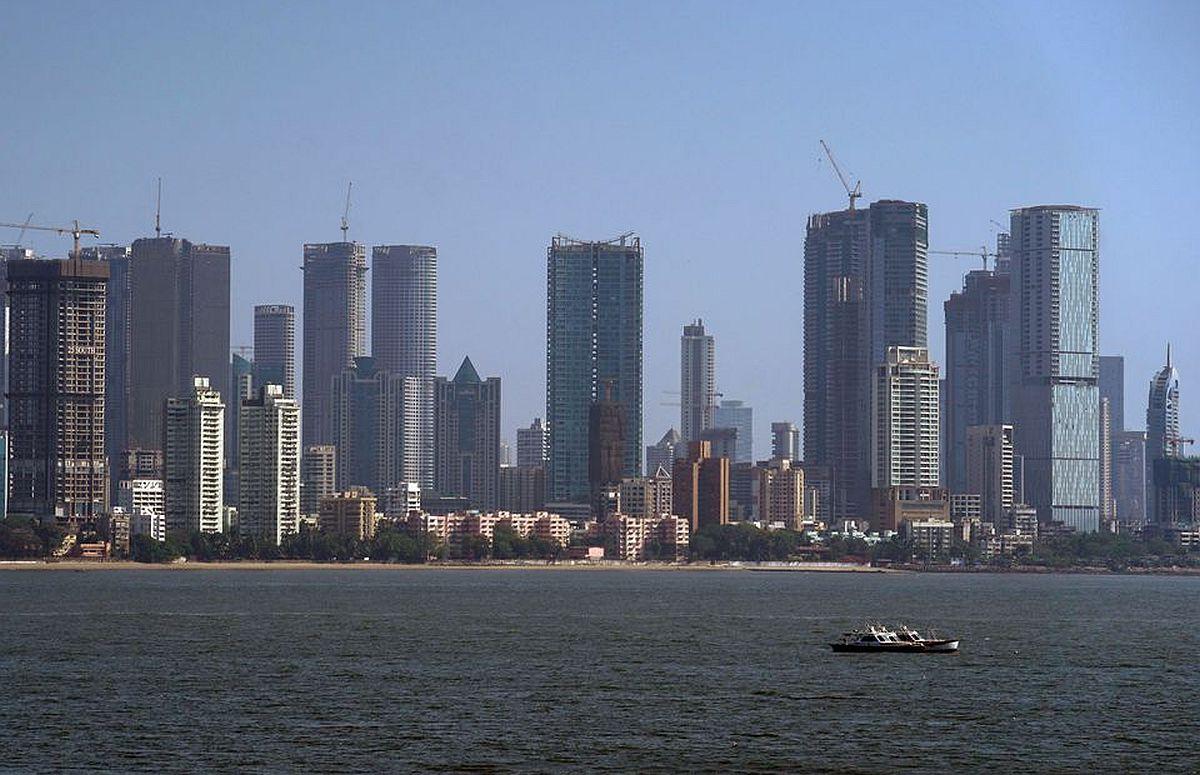Budget shouldn’t focus on fiscal consolidation alone: SBI
House economists at the nation’s largest lender State Bank of India (SBI) have urged the government to budget for nursing the pandemic-ravaged economy and not to focus too much on fiscal consolidation as there is a need for more stabilisation measures to sustain the fledgling recovery.
IMAGE: Skyline of Mumbai’s financial district. Photograph: Hemanshi Kamani/Reuters
And one of the best way to begin the new fiscal is to complete the share sale of LIC this fiscal.
This can go a long way in repairing the overstretched balance sheet which in turn will bring down fiscal deficit to a much lower 6.3 per cent in FY23 as the public coffers will be left with a cash surplus of at least Rs 3 lakh crore to begin the new fiscal, SBI chief economist Soumya Kanti Ghosh said in a pre-Budget note on Wednesday.
He said the Budget should not correct the fiscal deficit by more than 30-40 bps as most sectors of the economy still need support.
Pencilling in a 6-6.5 per cent fiscal deficit for FY23, down from 6.8-7.1 per cent from FY22, he said the Budget should also allow for very gradual fiscal consolidation.
For FY23, the fiscal consolidation should remain limited to 30-40 bps from the current fiscal.
He also cautioned against any new taxes like wealth tax or others at this point as that could do more harm than benefit.
Assuming the government keeps the expenditure growth at 8 per cent over FY22 estimates at Rs 38 lakh crore in FY23 and receipts (minus borrowing and other liabilities) would grow by 10.8 per cent, it would lead to fiscal deficit of around Rs 16.5 lakh crore or 6.3 per cent of GDP in FY23.
If LIC share sale passes through in FY22, the government might be ending fiscal with a large cash balance of Rs 3 lakh crore.
This can come handy in supporting a large part of government fiscal deficit without taking recourse to market borrowings, as per the note.
Against this background, the net market borrowings of the Centre is likely to be around Rs 8.2 lakh crore and with repayments of Rs 3.8 lakh crore, gross borrowings is expected at Rs 12 lakh crore (73 per cent of the fiscal deficit and same as in FY22 and FY21), Ghosh said.
Overall gross borrowings by the Centre and states are likely to be around Rs 21 lakh crore (Rs 19.7 lakh crore in FY22) and net borrowings at around Rs 14.8 lakh crore (Rs 15 lakh crore in FY22).
Ghosh also pointed out that unlike in FY22, when RBI has done OMOs of around Rs 2.6 lakh crore, helping government borrowing programme without disruptions, in FY23, such support is not likely.
He specifically called for continuing support to MSMEs saying the 6.33 crore of such units contribute 29 per cent of GDP, employing over 11 crore.
And one of the ways to help them is let bank lend them more by verifying their cashflows seamlessly through GST 4/ITR on real-time basis.
Another step could be extending the Emergency Credit Line Guarantee Scheme (ECLGS) till end FY23 to enable completion of the entire targeted Rs 4.5 lakh crore of credit flow under it.
For all the latest business News Click Here

